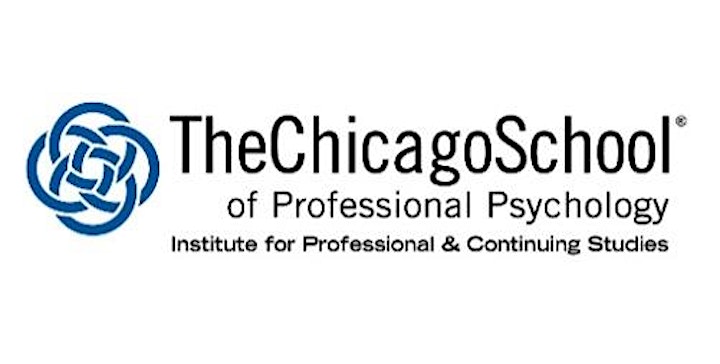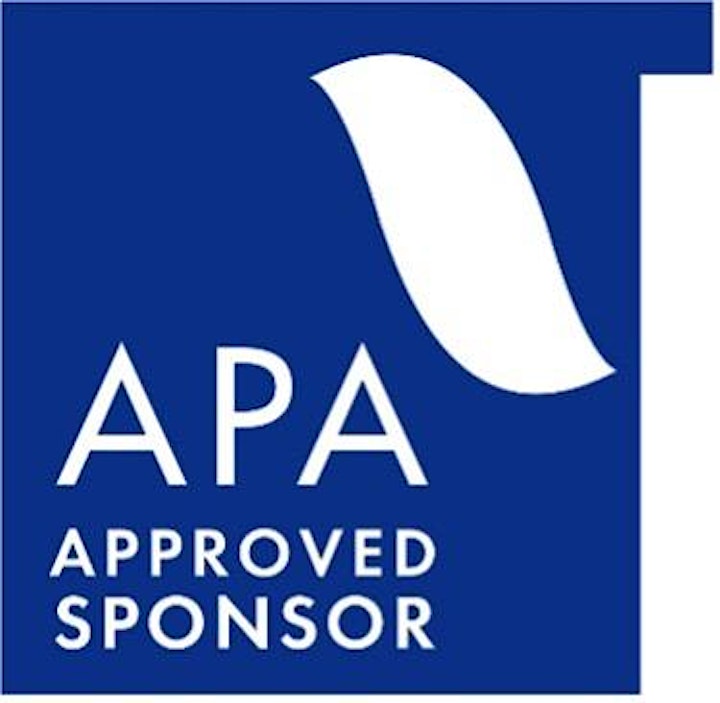
- This event has passed.
Assessing Risk Factors, PTSD, and Suicides Within Law Enforcement
October 20, 2021 @ 3:00 pm - 6:00 pm CDT

This webinar is being hosted on Zoom. The link to the Zoom meeting will be included in your order confirmation email from Eventbrite.
This live course offers 3 APA CE credits for Psychologists, 3 BBS California CEUs for Licensed Counselors, Social Workers or Marriage and Family Therapists, or 3 NBCC Clock Hours.
About This Event
According to current statistics, suicide rates compared to deaths due to the line of duty have been increasing for the third straight year. There were 140 law enforcement suicides in 2016, 159 in 2017, and 159 in 2018. The questions remain: Are police suicides more prevalent? What are the underlining contributors or risk factors associated with law enforcement suicide? What are some suicide evidence-based interventions and strategies in preventing or managing law enforcement suicides? Is there a correlation between COVID-19 and increased police suicide?
As the United States continues to deal with the COVID-19 pandemic, there’s another deadly trend that has been on the minds of police officials for decades: police officer suicides. The police officer suicide issue has been a pandemic for probably 20 years or more. As a result of this, more officers die by their hands than felonious assaults every year. We don’t know if this is because there are more suicides or more reporting, but we need to know that police suicide is real and needs to be addressed through prevention, intervention, and treatment. This program is designed to promote mental health awareness among law enforcement officers. The focus area will be educating the mental health profession about risk factors associated with and identifying those warning signs related to law enforcement personnel and police suicides.
Learning Objectives
At the completion of this program participants will be able to:
1) Describe the impact of a trauma involved crisis.
2) Identify those law enforcement organizational stressors.
3) Discuss and identify the risk factors associated with police suicides.
4) Identify Law Enforcement suicide prevention/intervention strategies (peer support programs, Law Enforcement EAP, outside sources of mental health care, building resiliency and protective factors, etc.)
5) Identify those protective factors used to manage law enforcement suicide prevention.
6) Discuss and analyze law enforcement PTSD therapy sessions.
7) Discuss and analyze law enforcement suicide assessment case studies.
Speakers

Gary Goines, a graduate of The Chicago School of Professional Psychology, is currently an adjunct professor for the Forensic Psychology Online and Washington, D.C. Campuses. He is also the Chair of the Alumni Council, a Board Member of the University Adjunct Advisory Board, Adjunct Mentor, and Technical Instructor at Homeland Security, Cheltenham, MD. He studies the psychological aspects of active shooter/active threat profiling & analyzing active shooter case studies for a police psychologist’s perspective. He examines law enforcement topics such as police selection/screening process, fit for duty, stress management skills, conflict resolution skills, crisis debriefing techniques, police interacting with emotional disturb and mentally ill individuals, necessary negotiation skills, hostage negotiation teams, law enforcement counselor/coach, and threat & risk assessment management. Professor Goines has one potential research project in planning how law enforcement relates to counselors and law enforcement training. Before joining The Chicago School as an Adjunct Professor, he was Supervisory Special Agent with the United States Capitol Police for over thirty years. He is currently a U.S. Capitol Police Agency Trustee on the Executive Board of the Fraternal Order of Police D.C. Lodge #1. Professor Goines is a certified instructor of the Maryland Police and Correctional Training Commission.
Additionally, Professor Goines serves on the board as the Director of Training for Protect and Serve LLC, a law enforcement and security professional consulting firm. During his career at the U.S. Capitol Police, he was a Crime Scene Search Officer, Patrol Officer, member of the Containment Emergency Response Team (hostage rescue team), Chair of the Fraternal Order of Police USCP Labor Committee, and on the Dignitary Protection Division. He has taught the following subjects: Psychology of Law Enforcement, Psychology of Hostage Negotiation, and Threat & Risk Assessment. He has conducted numerous active shooters presentations for the Homeland Security meeting in Bristol County, MA, and an active shooter presentation at the Forensic Mental Health Awareness Conference in the past years. He is a member of the APA, the Fraternal Order of Police, and the Association of Threat Assessment Professionals (ATAP).

Zachary Flynn-Tanner is a recent graduate of the Chicago School of Professional Psychology, Washington DC Campus as of December 2020. Through his passion in psychology and interest in police, he has been able to work with others at examining the psychology of law enforcement and what key aspects contribute to their potential issues regarding help-seeking behaviors. He has presented twice now at previous iterations of this conference focusing on the examination of law enforcement’s risk to trauma, PTSD, and suicide. During his master’s program, he interned for the Public Defenders Services through their Office of Rehabilitation and Development, where he worked with clients who were going through the legal system that needed mental health services and advocacy. He has also provided clinical case management services to those with substance abuse concerns and were being impacted by homelessness in Aurora, Colorado. Zachary now resides in Denver, Colorado where he works for Correctional Psychology Associates, whose focus is to provide mental health treatment for those within correctional settings and into the community. As a BJA Grant Mental Health Clinician in the Jefferson County Jail in Colorado, Zachary is working towards his licensure where he eventually hopes to work with law enforcement personnel providing mental health awareness training, consultations, and clinical services.
Program Standards and Goals
This program meets APA’s continuing education Standard 1.1: Program content focuses on application of psychological assessment and/or intervention methods that have overall consistent and credible empirical support in the contemporary peer reviewed scientific literature beyond those publications and other types of communications devoted primarily to the promotion of the approach.
This program meets APA’s continuing education Goal 3: Program will allow psychologists to maintain, develop, and increase competencies in order to improve services to the public and enhance contributions to the profession.
References
Carleton, R. N., LeBouthilliee, D. M., Duranceau, S., Ricciaidelli, R., Groll, D., Brunet, A., Griffiths, C.T., Afifi, T.O., Tallieu, T., aren, J., MacPhee, R.S., Hozempa, K., Weekes, J.R., Abrams, K.J., Cramm, H.A. & Hatcher, S., Stewart, S.H. (2018). Suicidal ideations, plans, and attempts among public safety personnel in Canada. Canadian Psychology, 59 (3), 220-231.
Cerel, J., Jones, B., Brown, M., Weisenhorn, D. & Patel, K. (2019). Suicide exposure in law enforcement officers. Suicide and Life-Threatening Behavior, 49(5), 1281-1287.
Digliani, J., (2015). Contemporary issues in police psychology: Police peer support team training and the make it safe police officer initiative. Library of Congress.
El Sayed, S. H., Sanford, S. M. & Kerley, K. R. (2019). Understanding workplace stress among federal law enforcement. American Journal of Criminal Justice, 44, 409-429.
Gonzales-Reingle, J. M., Jetelna, K. K., Bishop, S. A., Livingston, M. D., Perez, R. A. & Gabriel, K. P. (2019). The feasibility of using real-time, objective measurements of physiological stress among law enforcement officers in Dallas, Texas. Policing: An International Journal, 47(4), 701-710.
Mishara, B. L. & Martin, N. (2012). Effect of a comprehensive police suicide prevention program. Crisis, 33(3), 162-168.
Registration and Fees
Chicago School Faculty, Students, and Alumni: Free (Chicago School email required for free registration)
Community Members: $30.00
Potential Students Only (*No CEUs Provided*)
All funds raised through this workshop will benefit The Chicago School of Professional Psychology’s Washington DC Campus Counseling Department Scholarship Program.
Refund Policy: 100% of tuition is refundable up to 48 hours before the program. Within 48 hours of the program, tuition is nonrefundable.
Continuing Education
Target Audience: Professionals from all mental health disciplines and graduate students from all mental health disciplines.
Psychologists. The Chicago School of Professional Psychology is committed to accessibility and non-discrimination in its continuing education activities. The Chicago School of Professional Psychology is also committed to conducting all activities in conformity with the American Psychological Association’s Ethical Principles for Psychologists. Participants are asked to be aware of the need for privacy and confidentiality throughout the program. If program content becomes stressful, participants are encouraged to process these feelings during discussion periods. If participants have special needs, we will attempt to accommodate them. Please address questions, concerns and any complaints to Danielle Bohrer at 312-467-2364. There is no commercial support for this program nor are there any relationships between the CE Sponsor, presenting organization, presenter, program content, research, grants, or other funding that could reasonably be construed as conflicts of interest.
MFTs, LPCCs, and LCSWs. Course meets the qualifications for continuing education credit for MFTs, LPCCs, and/or LCSWs as required by the California Board of Behavioral Sciences. If you are licensed outside of California please check with your local licensing agency to determine if they will accept these CEUs. The Chicago School of Professional Psychology is approved by the California Board of Behavioral Sciences (BBS) to offer continuing education programming for MFTs, LPCCs, LEPs, and/or LCSWs. The Chicago School of Professional Psychology is an accredited or approved postsecondary institution that meets the requirements set forth in Sections 4980.54(f)(1), 4989.34, 4996.22(d)(1), or 4999.76(d) of the Code.
Participation Certificate. The Chicago School of Professional Psychology is able to provide students and other participants who simply wish to have documentation of their attendance at the program a participation certificate.
Non Psychologists. Most licensing boards accept Continuing Education Credits sponsored by the American Psychological Association but non-psychologists are recommended to consult with their specific state-licensing board to ensure that APA-sponsored CE is acceptable.
*Participants must attend 100% of the program, and pass a brief comprehension quiz, in order to obtain a Certificate of Attendance.
The Chicago School of Professional Psychology is approved by the American Psychological Association to sponsor continuing education for psychologists. The Chicago School of Professional Psychology, Washington DC Campus has been approved by NBCC as an Approved Continuing Education Provider, ACEP No. 3061. The Chicago School of Professional Psychology maintains responsibility for this program and its content.




